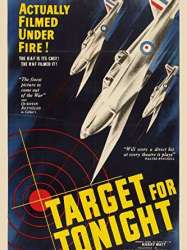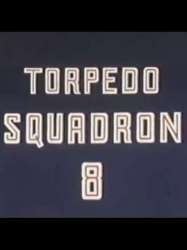Rosies of the North is a canadien film of genre Documentary
Rosies of the North (1998)

If you like this film, let us know!
Rosies of the North (French-language title: Riveuses du nord) is a 46-minute Canadian documentary film made in 1999 by the National Film Board of Canada (NFB) and directed by Kelly Saxberg. The film recounts the story of the women at the Canadian Car and Foundry in Fort William, Ontario, who built fighter and bomber aircraft needed for the war effort in the Second World War. It also is the story of female engineer Elsie MacGill, who became known as the "Queen of the Hurricanes". The title of the film is an allusion to the wartime iconic image of Rosie the Riveter.
Synopsis
In 1939, Canada joined the worldwide war effort with factories turning out war machines. At the Canadian Car and Foundry (nicknamed "Can-Car") in Fort William, Ontario, a large workforce was recruited to build the Hawker Hurricane fighter aircraft, including a preponderance of women. Many of them were young, and came from as far away as the Prairies.Comments
Leave comment :
Suggestions of similar film to Rosies of the North
There are 8968 with the same cinematographic genres, 13961 films with the same themes (including 44 films with the same 7 themes than Rosies of the North), to have finally 70 suggestions of similar films.If you liked Rosies of the North, you will probably like those similar films :

Birth of the B-29 (1945)
, 20minutesOrigin USA
Genres Documentary
Themes Transport films, Aviation films, Documentary films about war, Documentary films about historical events, Documentary films about technology, Political films, Documentary films about World War II, United States Armed Forces in films
Rating58%






Target for Tonight (1941)
, 48minutesDirected by Harry Watt
Origin United-kingdom
Genres War, Documentary, Historical
Themes Transport films, Aviation films, Documentary films about war, Documentary films about historical events, Documentary films about technology, Political films, Documentary films about World War II
Rating62%





Before the film, several text cards explain bombers and the Royal Air Force chain of command. The film begins with an observation aircraft flying over and dropping a box of undeveloped film. Bomber Command develops the film and analyzes the resulting photographs, which are presented for the audience to see. There has been a massive build-up by German forces in the subject area for the past few months. The film shows the planning of the mission, even detailing how the bomber wing chooses munitions for the task. The weather forecast is expected to be good and the pilots are briefed. The crew of "'F' for Freddie", the bomber that is the focal point of the film, suit up and take off. While over Germany, the crew bombs the target, dead on for one bomb but their aircraft is hit by flak from "faceless" anti-aircraft gunners. The radio operator is hit in the leg and Freddie is the last aircraft to return. Mist covers the water, prompting worry at the Command. Meanwhile, Freddie cannot climb after the flak hit. They are not losing altitude but are in a bad situation. Tension builds in the film until finally, 'F for Freddie' lands. No aircraft are lost and the mission is a complete success.

Torpedo Squadron (1942)
, 8minutesDirected by John Ford
Origin USA
Genres War, Documentary
Themes Politique, Transport films, Aviation films, Documentary films about war, Documentary films about historical events, Documentary films about technology, Political films, Documentary films about World War II
Rating61%






Victory Through Air Power (1943)
, 1h5Directed by Hal Roach, H. C. Potter, Charles Monroe Schulz, Clyde Geronimi, Fred Moore, Franklin Thomas, James Algar, Perce Pearce, Jack Kinney
Origin USA
Genres War, Documentary, Animation
Themes Politique, Transport films, Aviation films, Documentary films about war, Documentary films about historical events, Documentary films about technology, Political films, Documentary films about World War II, Children's films
Actors Art Baker
Rating64%





Le fait débute par un rappel historique. Il évoque les controverses liées au Général William Mitchell, pionnier de l'aviation militaire entre 1919 et 1936, année de sa mort. Il militait pour le développement d'une aviation ayant des bombardiers, mais sa hiérarchie croyait en la supériorité de la marine de guerre. En 1925, il fut même rétrogradé comme colonel.

Original Child Bomb (2004)
, 57minutesGenres Documentary
Themes Environmental films, Seafaring films, Transport films, Aviation films, Documentary films about environmental issues, Documentary films about war, Documentary films about historical events, Documentary films about nuclear technology, Documentary films about technology, Political films, Documentary films about World War II
Rating68%





Original Child Bomb begins with a recreation of the dropping of Little Boy from the perspective of Hiroshima's residents. It is joined with both historical and contemporary footage and overlaid with various voice-overs. The documentary moves on to offer the accounts of several Japanese witnesses of the atomic bombing destruction.

Wings on Her Shoulder (1943)
, 10minutesOrigin Canada
Genres Documentary
Themes Transport films, Aviation films, Documentary films about war, Documentary films about historical events, Documentary films about technology, Political films, Documentary films about World War II
As the Second World War continues, the Canadian contribution to the Allied bombing campaign over occupied Europe requires more aviators. The government responds by creating the Royal Canadian Air Force Women's Division in 1941. By 1943, 9,000 recruits, women from all backgrounds, are taking over a wide range of jobs. Women in the RCAF, or WDs as they were called, were clerks, drivers, photographers, air photo interpreters, weather observers, instrument mechanics, parachute riggers as well as many administrative and technical positions in the RCAF. While most WDs were located at British Commonwealth Air Training Plan stations across Canada, many others served overseas with RCAF Overseas Headquarters and

Train Busters (1944)
, 13minutesDirected by Sydney Newman
Origin Canada
Genres War, Documentary
Themes Transport films, Aviation films, Documentary films about war, Documentary films about historical events, Documentary films about technology, Political films, Documentary films about World War II
Actors Lorne Greene
In 1943, the RCAF strength and equipment consists of 32 overseas squadrons based in England. Two fundamental missions were essential to the Allied air strategy: night bombing and interdiction. While bombers struck at the heart of occupied Europe, the German war machine reacted by sending out supplies to their far-flung European bases by rail. The RCAF disrupted the "nerve centres" by attacking the rail system. These specialized ground attack fighters were extremely successful, with fighter-bombers destroying munition trains.

Wings Up (1943)
, 20minutesGenres War, Documentary
Themes Transport films, Aviation films, Documentary films about war, Documentary films about historical events, Documentary films about technology, Political films, Documentary films about World War II, United States Armed Forces in films
Actors Clark Gable, Gilbert Roland, William Holden, Robert Preston, Brenda Marshall
Rating66%






The Cats of Mirikitani (2006)
, 1h14Genres Documentary
Themes Films based on the September 11 attacks, Prison films, Films about racism, Films about religion, Films about terrorism, Transport films, Aviation films, Documentary films about the visual arts, Documentary films about racism, Documentary films about law, Documentary films about war, Documentary films about historical events, Documentaire sur une personnalité, Documentary films about politics, Documentary films about religion, Documentary films about technology, Documentary films about terrorism, Political films, Films about Islam, Documentary films about World War II, Disaster films, Films about aviation accidents or incidents, Films about hijackings
Rating81%





In 2001 Japanese American painter, Jimmy Mirikitani (born Tsutomu Mirikitani), and over 80 years old, was living on the streets of lower Manhattan. Filmmaker, Linda Hattendorf, took an interest and began

Banshees Over Canada (1943)
, 19minutesOrigin Canada
Genres Documentary
Themes Transport films, Aviation films, Documentary films about war, Documentary films about historical events, Documentary films about technology, Political films, Documentary films about World War II
British preparations for a German bombing raid are examined, as well as the resultant destruction caused by the raid and the defences mounted by Britain's Royal Air Force. Canadian preparations for air defence, should the country be attacked during the then-current Second World War is also highlighted.
 Connection
Connection